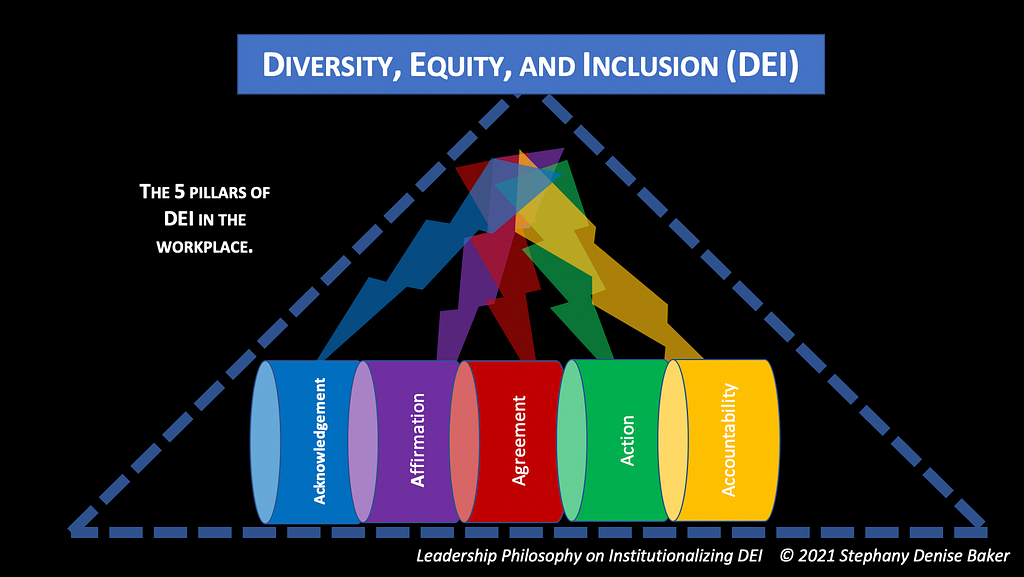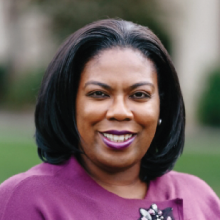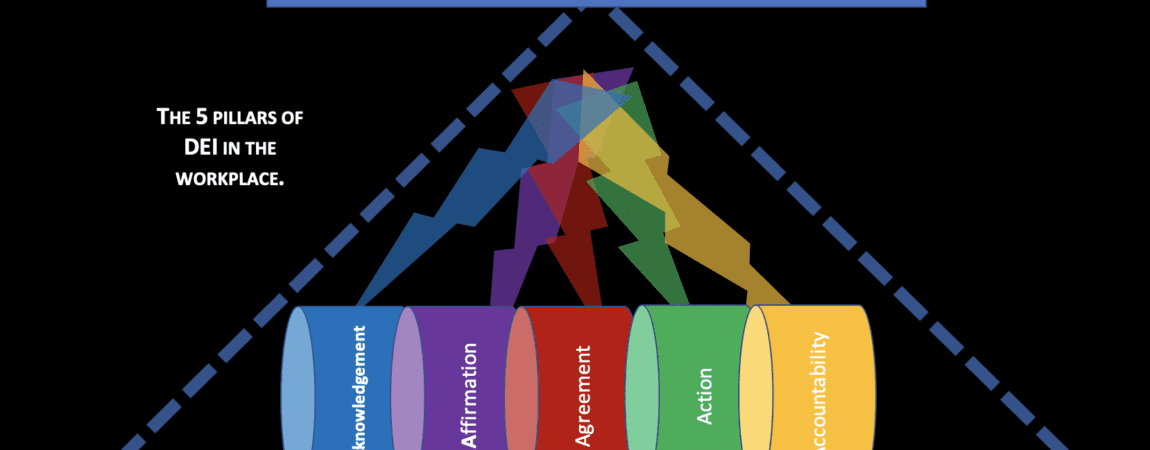“DEI is about acknowledging our communities’ values, purpose, and needs as leaders surrender to the reality that organizations exist to fulfill a higher purpose for the greater good.”
Establishing an equitable and inclusive institution begins by putting people before politics, profits, and pride. As social injustice continues to rise and individuals continue to feel more detached from the mission and vision of the organizations they work for, it is more than necessary to incorporate Diversity, Equity, and Inclusion (DEI) into the organization’s fabric. Institutionalizing DEI is to resuscitate motivation, hope, and creativity that has died within the heart of so many employees within our organizations. By default, organizations devote most of their time and resources to growing their business. With this approach, when it comes to developing, empowering, and investing in their employees, some often fall short because the same level of urgency and financial commitment may not always be seen as essential. DEI is about acknowledging our communities’ values, purpose, and needs as leaders surrender to the reality that organizations exist to fulfill a higher purpose for the greater good.Who should drive DEI: the individual or the team?
Should the burden of driving diversity be placed solely on one individual or team? Should the individual be held accountable if DEI initiatives fail? My recommendation is for leaders to sit with their leadership teams and identify how DEI practices integrate into their daily work. I have found this approach to be most valuable because it allows the leader to pursue the disciplined process of examining where DEI is absent within the organization. The leader is then able to use this raised level of awareness to support potential solutions. In addition, this approach transforms leaders to reflect the necessary behavior traits that will influence and develop their followers as contributing change agents within the organization that drives DEI together.“A leader’s philosophy in DEI should be institutionalizing inclusion and equity into the fabric of the organization’s culture so that all stakeholders benefit in the seamless practice of that which is natural and the norm of its existence.” — S.D. Baker


Stephany Prince, Fung Institute executive director: How leaders can create inclusive workspaces was originally published in Berkeley Master of Engineering on Medium, where people are continuing the conversation by highlighting and responding to this story.


